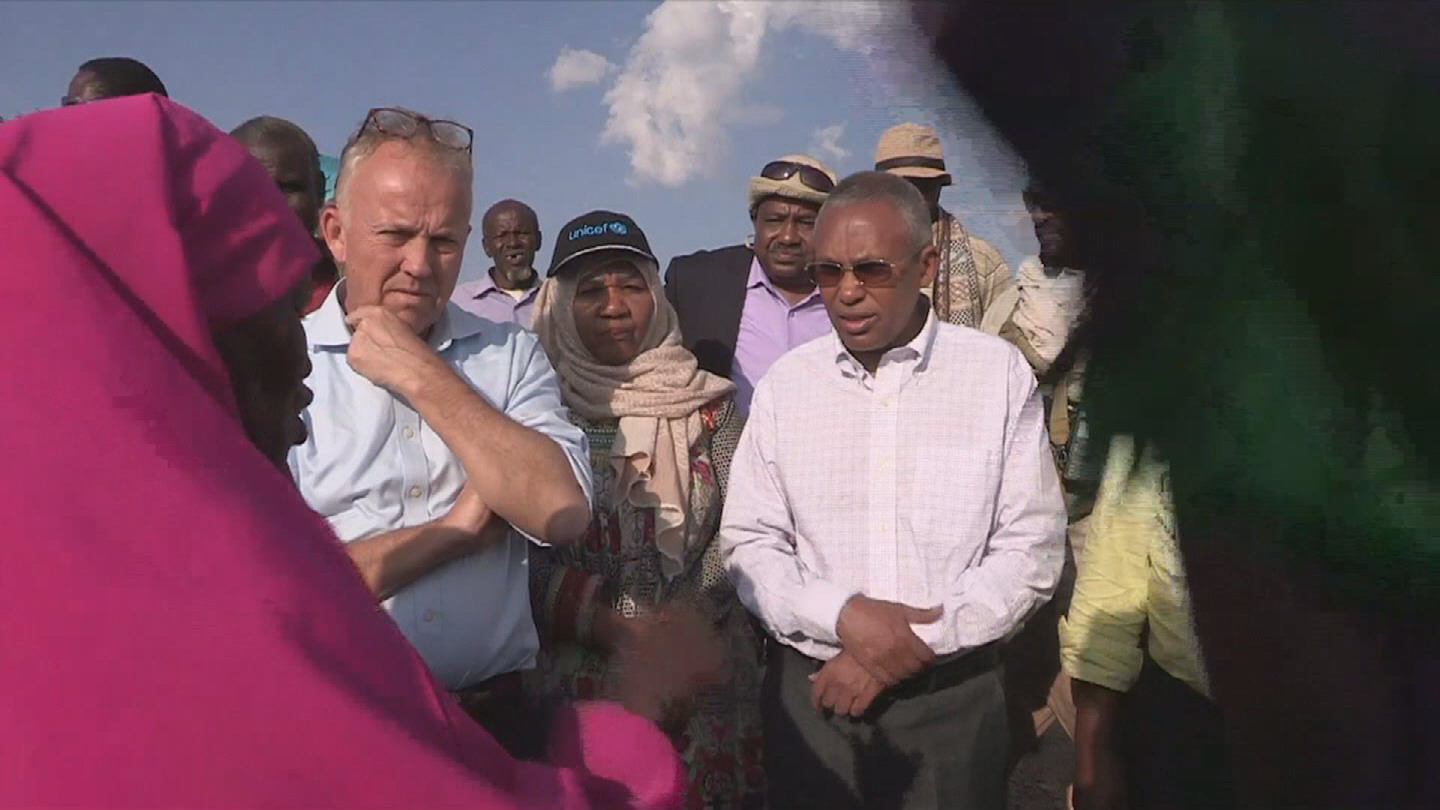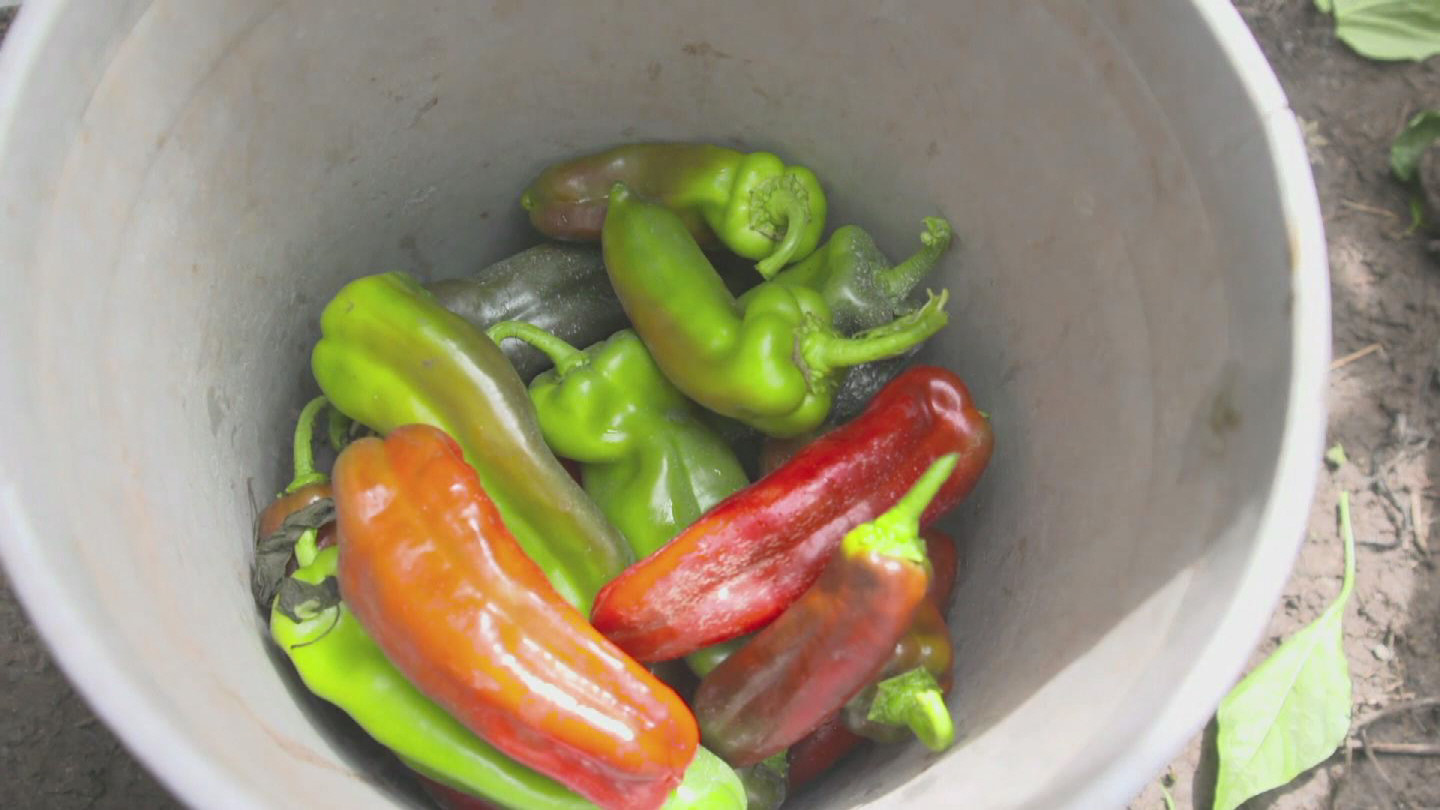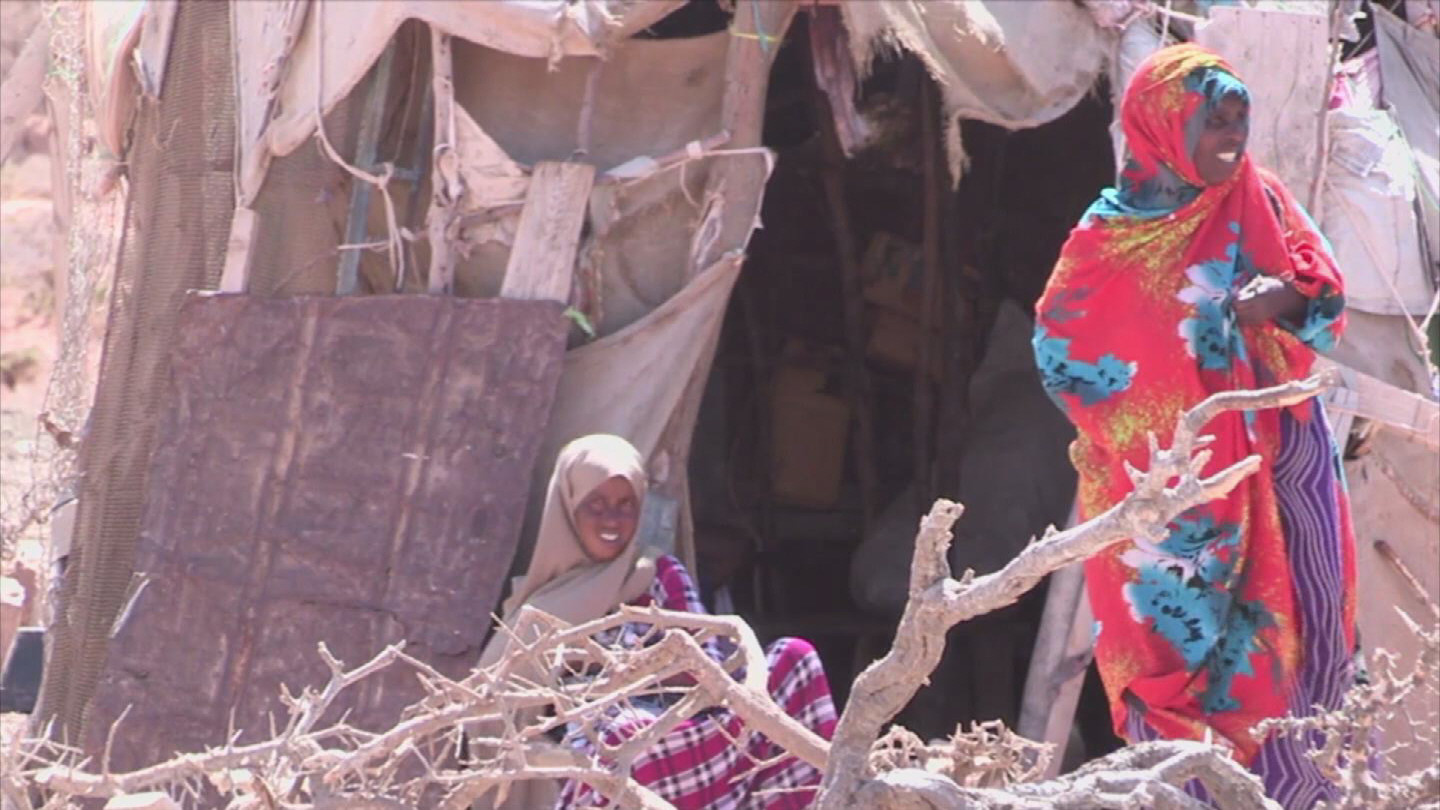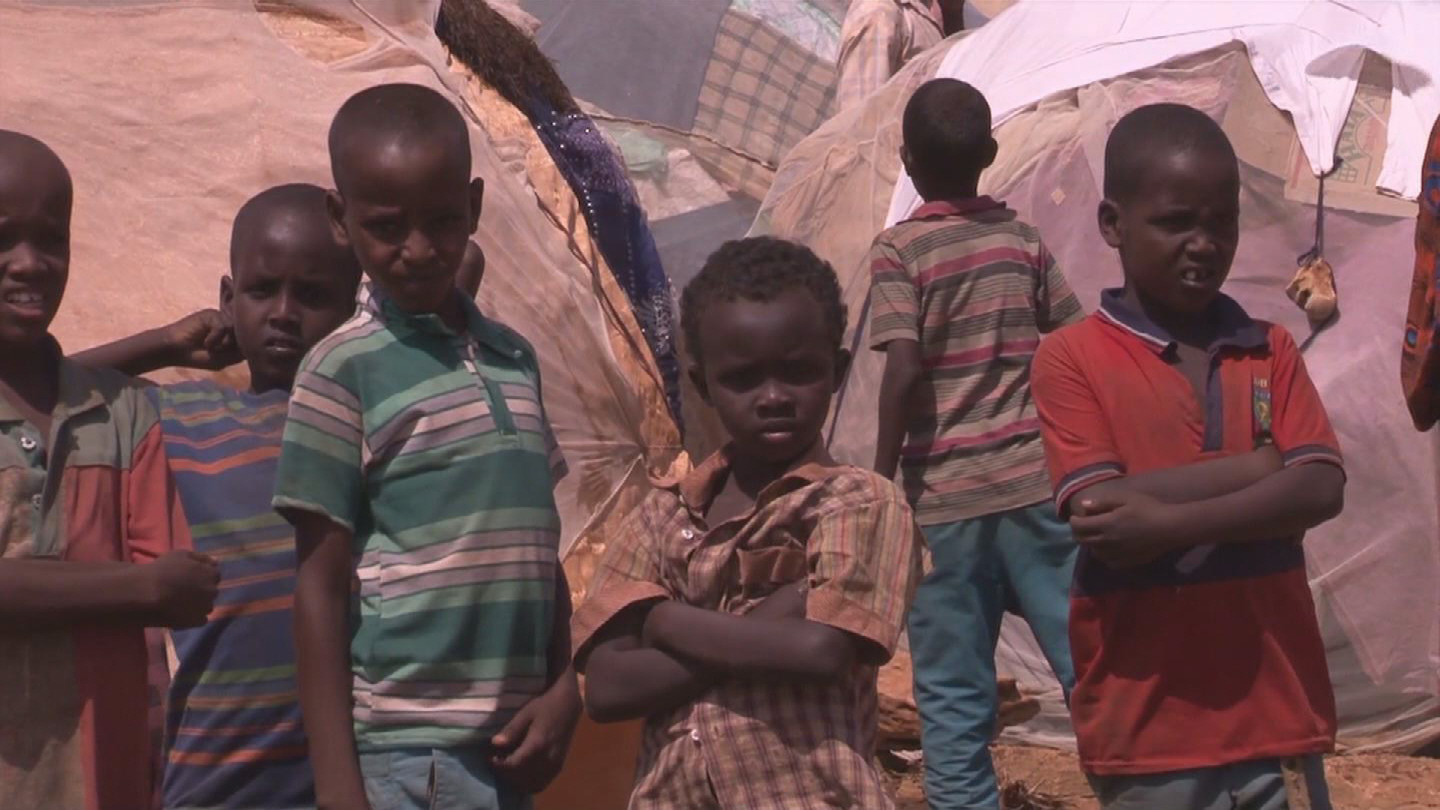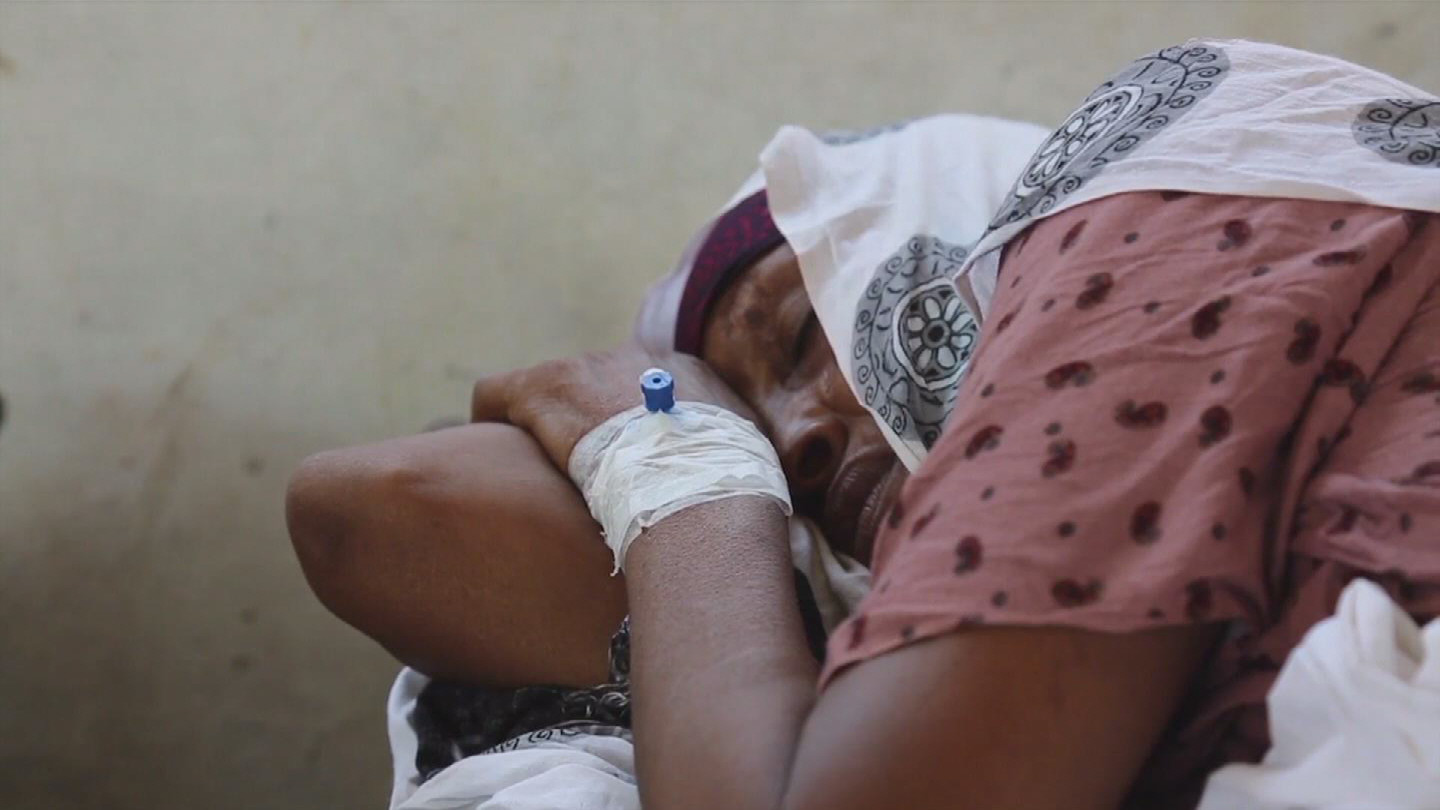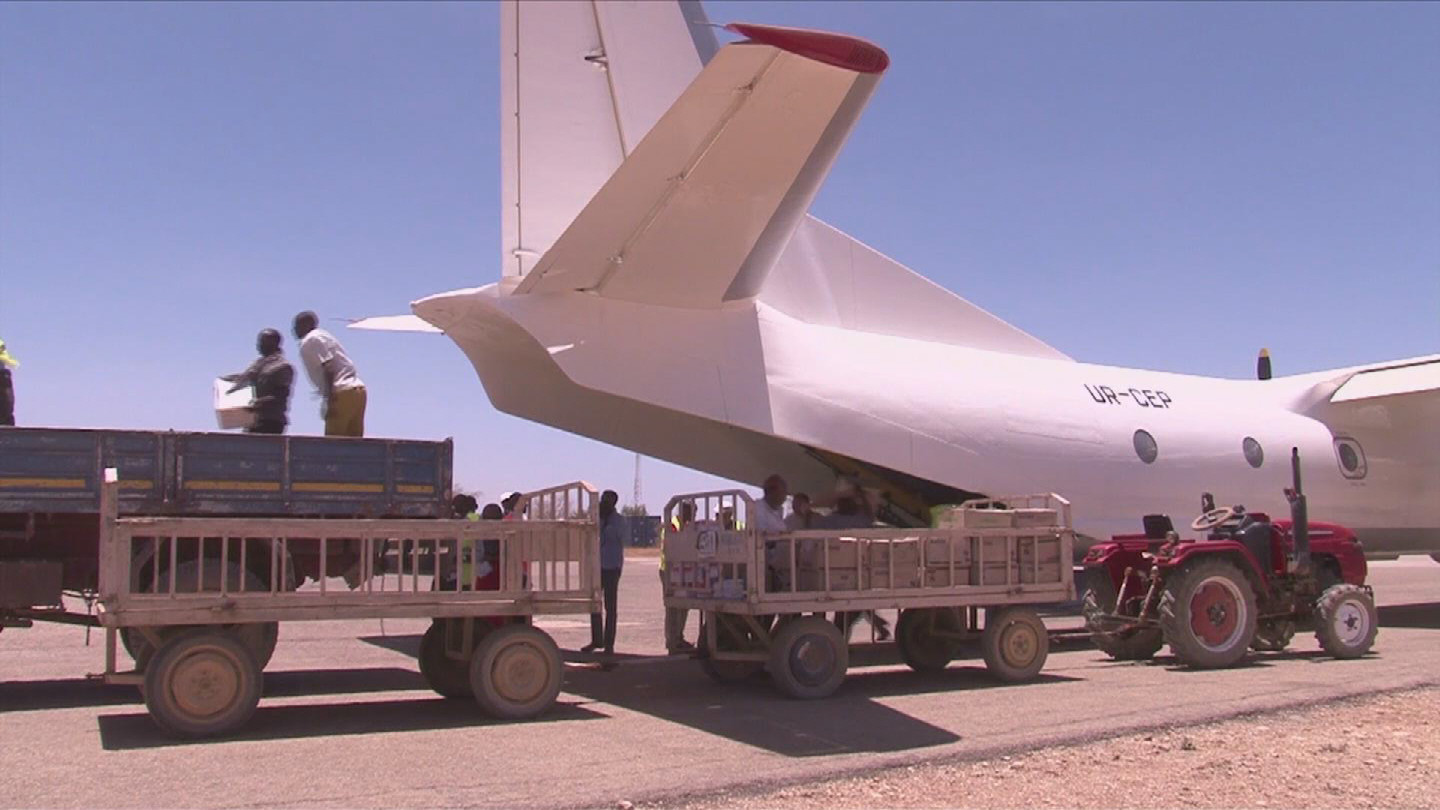SOMALIA / DROUGHT RESPONSE
Download
There is no media available to download.
Share
STORY: SOMALIA / DROUGHT RESPONSE
TRT: 02:48
SOURCE: UNSOM
RESTRICTION: PLEASE CREDIT UNSOM
LANGUAGE: ENGLISH / NATS
DATELINE: 30 JANUARY 2018, MOGADISHU, SOMALIA
1. Wide shot, the high-level delegation arrives at Aden Abdulle International Airport
2. Med shot, the high-level delegation arrives at Aden Abdulle International Airport
3. Wide shot, high ranking officials receive the delegation at the airport
4. Med shot, high ranking officials receive the delegation at the airport
5. Close up, high ranking officials receive the delegation at the airport
6. Wide shot, high ranking officials receive the delegation at the airport
7. Med shot, Michael Keating, the Special Representative of the UN Secretary-General (SRSG) for Somalia
8. Wide shot, officials and invited guests present during the Roundtable 9.
9. Med shot, H.E Hassan Ali Khaire, Prime Minister of the Federal Republic of Somalia, Achim Steiner, Under Secretary-General and Administrator, United Nations Development Programme, Mark Lowcock, Under Secretary-General for Humanitarian Affairs and Emergency Relief Coordinator, United Nations and Mahmoud Mohieldin, Senior Vice President for the 2030 Development Agenda, United Nations Relations and Partnerships, World Bank
10. Close up, H.E Hassan Ali Khaire, Prime Minister of the Federal Republic of Somalia, Achim Steiner, Under Secretary-General and Administrator, United Nations Development Programme, Mark Lowcock, Under Secretary-General for Humanitarian Affairs and Emergency Relief Coordinator, United Nations
11. Med shot, officials and invited guests present during the roundtable
12. Close up, an official present during the roundtable
13. SOUNDBITE (ENGLISH) Mark Lowcock, Under Secretary-General for Humanitarian Affairs and Emergency Relief Coordinator, United Nations:
“We want to work together as humanitarians with the development partners, so that while at the same time as responding to immediate humanitarian needs, we are implementing longer-term solutions to build resilience. We want to work behind the framework set by the government to agree to measurable results to achieve between now and 2022.
14. Wide shot, officials and other participants during the roundtable
15. Med shot, officials and other participants during the roundtable
16. Close up, an official attending the roundtable
17. Wide shot, journalists cover proceedings during the roundtable
18. Med shot, journalists cover proceedings during the roundtable
19. Close up, a journalist covers proceedings during the roundtable
20. SOUNDBITE (ENGLISH) Achim Steiner, Under Secretary-General and Administrator, United Nations Development Programme:
“As we meet here at the beginning of 2018, we should therefore look back with some satisfaction at having proven, first of all, the capacity of the government to lead the nation through this tough period, [and] the capacity of the government also to bring together the international community and rapidly align resources and capacities to deal with this issue.”
21. Wide shot, officials and invited guests present during the roundtable
22. Med shot, officials and invited guests present during the roundtable
23. Close up, officials present during the roundtable
24. Wide shot, officials and invited guests present during the roundtable
25. Med shot, H.E Hassan Ali Khaire, Prime Minister of the Federal Republic of Somalia and Mark Lowcock, Under Secretary-General for Humanitarian Affairs and Emergency Relief Coordinator, United Nations
26. Close up, an official present during the roundtable
27. SOUNDBITE (English) Hassan Ali Khaire, Prime Minister of The Federal Republic Of Somalia:
“With a substantial number of our population impacted by the 2016-2017 drought, and with the anticipation of yet another poor rainy season in a few months, we cannot downplay the continued need for a forward-looking plan with concerted efforts from all of us.”
28. Wide shot, officials and invited guests present during the round-table
29. Med shot, officials and invited guests present during the roundtable
30. Close up, Michael Keating, the Special Representative of the UN Secretary-General (SRSG) for Somalia
31. Wide shot, officials and invited guests present at the roundtable
32. Med shot, a representative takes the delegation through a power-point presentation
33. Close up, a representative takes the delegation through a power-point presentation
Somalia and international partners reaffirmed their commitment to end the country’s recurring cycle of humanitarian crises and promote its future development during a high-level roundtable on drought response and recovery today (30 Jan).
Opened by Prime Minister Hassan Ali Khaire, the meeting featured the formal launch of the 2018 Humanitarian Response Plan that seeks to raise $1.5 billion to address the needs of 5.4 million people nationwide. The key findings of a Drought Impact Needs Assessment were presented during the meeting, with damages and losses caused by the drought now expected to exceed $3.25 billion.
The outcomes of the needs assessment were used to develop a Recovery and Resilience Framework, whose guiding principles will enable the Federal Government of Somalia and the country’s Federal Member States to devise medium -and long-term solutions to the root causes of Somalia’s vulnerability to drought.
Speaking to reporters in Mogadishu, UN Under Secretary-General for Humanitarian Affairs and Emergency Relief Coordinator Mark Lowcock expressed his concern that humanitarian needs in Somalia may persist in the face of the country’s prolonged drought and armed conflict, which have caused the internal displacement of over two million people. He also underscored the resolve of international partners to collaborate with the Somali government’s strategy to foster sustainable recovery and reduce the causes of the country’s vulnerability to drought.
Lowcock said “we want to work together as humanitarians with development partners so that as we respond to immediate humanitarian needs, we are implementing long-term solutions to build resilience.”
He added “we want to work behind the framework set by the government to agree to measurable results to achieve between now and 2022.”
UN Under Secretary-General and Administrator of the United Nations Development Programme (UNDP), Achim Steiner, lauded the successful efforts of federal and state-level governments to avert a famine in 2017 with strong support from the international community totaling nearly $1.3 billion.
Steiner, who is making his first visit to Somalia since he was named to head UNDP last year said “you should therefore look back with some satisfaction, at having proven first of all the capacity of the government to lead the nation through this tough period and its capacity to bring together the international community and rapidly align resources to deal with this issue.”
Prime Minister Khaire welcomed the presentation of the Recovery and Resilience Framework, which was led by the Federal Government last year in partnership with Federal Member States, the United Nations, the World Bank and the European Union.
The Prime Minister said “with a substantial number of our population impacted by the 2016/2017 drought, and with the anticipation of yet another poor rainy season in a few months, we cannot downplay the continued need for a forward-looking plan with concerted efforts from all of us.”
He assured Somalia’s humanitarian and development partners that the Federal Government and the Federal Member States would work tirelessly to achieve coherence among all humanitarian actors and their operations.
The UN’s top envoy for Somalia Michael Keating warned that a failure to provide tangible solutions to the country’s humanitarian crises posed a threat to the country’s fledgling stability.
Keating said “the situation facing the population of this country is truly terrible, especially minority groups and people freshly displaced in cities, living on the land with no security and no certainty.”
The Recovery and Resilience Framework is expected to guide the recovery efforts of the Somali government, partners and other relevant stakeholders. It is also designed to facilitate collective efforts to implement the recommendations of the Drought Impact Needs Assessment on achieving the long-term goal of resilient development.
